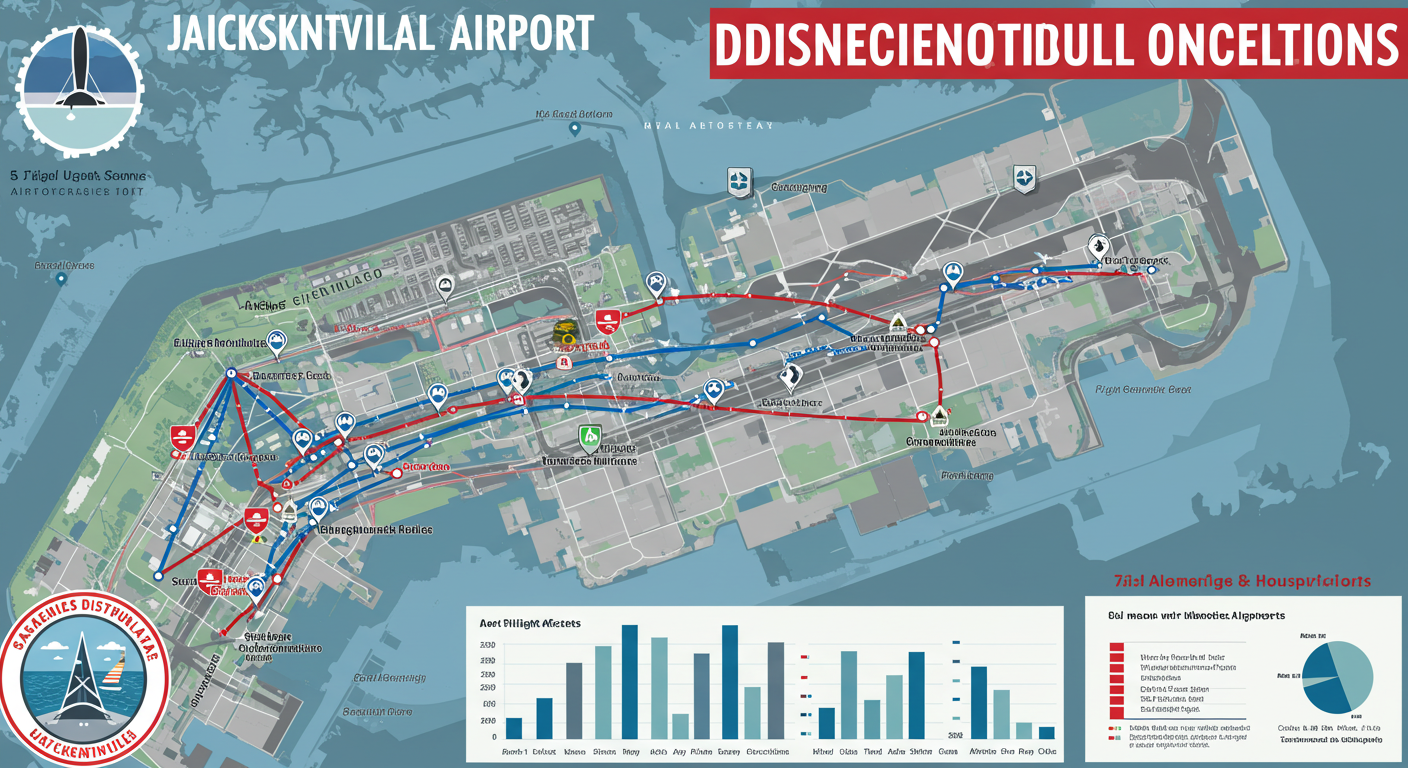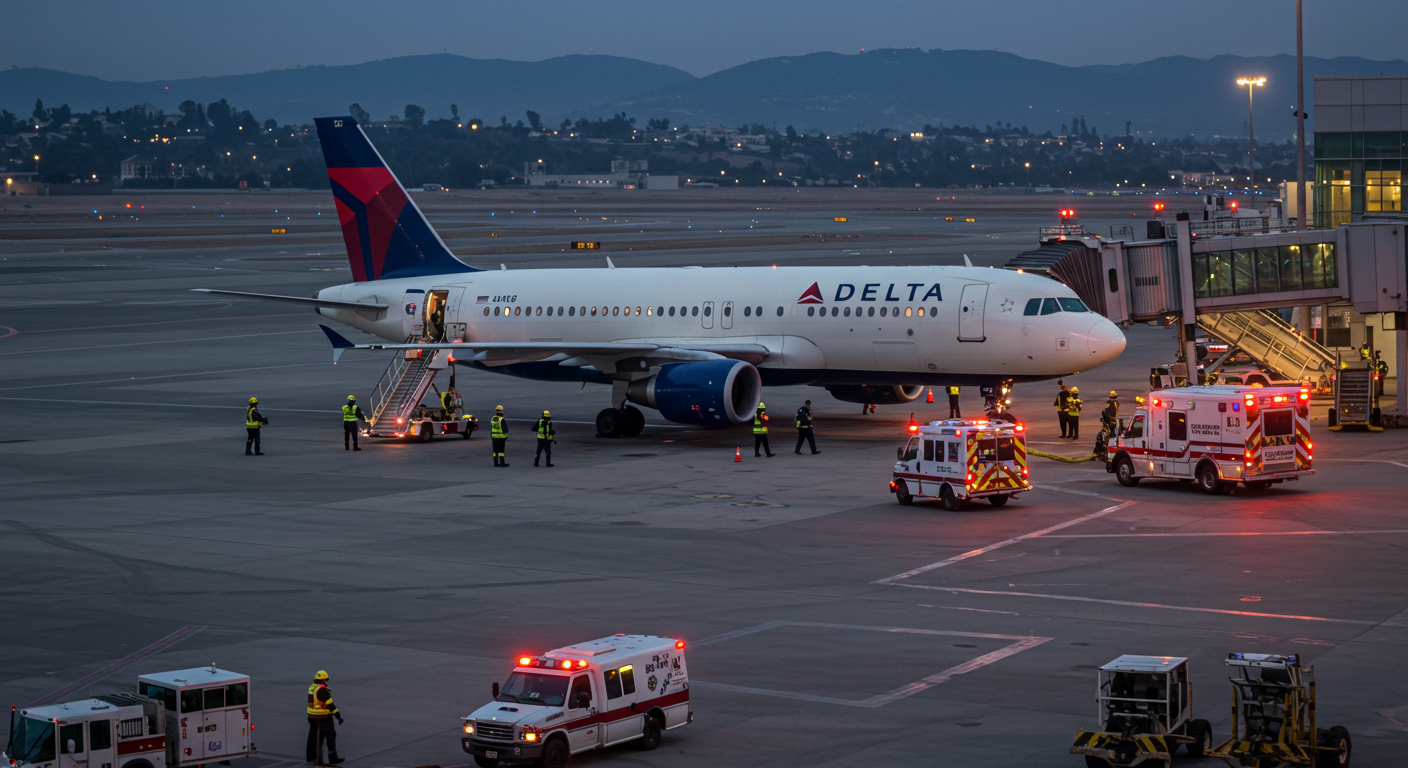jacksonville flight discontinuations has always been a bustling hub for travelers, thanks to its strategic location and vibrant culture. However, recent events have left many fliers grounded and puzzled by the frequency of flight discontinuations in this sunny city. Whether you’re planning a getaway or heading home after a long trip, these disruptions can create quite the headache. As airlines adjust their schedules and navigate various challenges, understanding the latest developments is essential for anyone who relies on Jacksonville’s airport for their travel needs. Let’s dive into what’s happening with flights in Jacksonville and how it affects both travelers and the local economy.
Jacksonville flight discontinuations
jacksonville flight discontinuations has recently faced notable flight discontinuations, impacting many travelers. The local airport has seen several routes halted, leaving passengers scrambling for alternatives.
These disruptions have raised concerns about accessibility and connectivity for the region. Jacksonville International Airport is a key hub for both leisure and business travel, making these changes particularly significant.
Travelers are now navigating a landscape of uncertainty as they plan their journeys. Families, business professionals, and tourists alike feel the effects of fewer available flights.
The ripple effect extends beyond individual plans; it touches on the broader economic fabric of Jacksonville. Reduced air access can deter tourism and impact local businesses that rely on traveler footfall.
Understanding this evolving situation is crucial for anyone considering travel to or from Jacksonville in the near future.
The reasons behind the recent flight disruptions in Jacksonville
Several factors contribute to the recent flight disruptions in Jacksonville. Weather issues have played a significant role, with storms frequently impacting schedules. Heavy rains and winds can delay takeoffs and landings, creating ripple effects throughout the day.
Additionally, staffing shortages at airlines have intensified these challenges. Many carriers are grappling with a lack of available crew members, which forces them to cancel flights unexpectedly.
Operational difficulties also factor into delays. Mechanical issues can arise without warning, leaving planes grounded longer than anticipated.
Rising fuel costs continue to strain airline budgets. This has resulted in route adjustments or cancellations as airlines work to cut expenses while maintaining service levels.
The combination of these elements creates an unpredictable environment for travelers flying out of Jacksonville.
Impact on travelers and the local economy
Travelers have felt the sting of Jacksonville flight discontinuations. Cancellations lead to missed connections and altered plans, causing frustration for many. Passengers face uncertainty as they scramble to find alternative flights or adjust their schedules.
The local economy isn’t immune either. Businesses reliant on tourism suffer when fewer people travel to and from Jacksonville. Hotels, restaurants, and retail shops see a dip in customer traffic. This ripple effect can weaken community revenue streams.
Moreover, frequent travelers often reconsider their loyalty to airlines that struggle with reliability. A decline in trust may push them toward other airports or routes altogether, impacting long-term growth.
In addition, the emotional toll on passengers cannot be overlooked. Stress levels rise when facing unexpected disruptions during what should be an enjoyable journey. For many, travel is not just about reaching a destination; it’s also about the experience along the way.
Steps taken by airlines and airports to address the issue
Airlines and airports are actively responding to the recent flight discontinuations in Jacksonville. Many carriers have ramped up communication efforts, providing real-time updates on delays and cancellations via mobile apps and social media platforms.
To ease passenger frustration, some airlines have introduced flexible rebooking policies. This allows travelers to change their plans without incurring hefty fees, a welcome relief during turbulent times.
On the airport side, enhanced staffing has been implemented to manage increased inquiries from affected passengers. Customer service teams are working around the clock at Jacksonville International Airport to assist stranded travelers.
Additionally, collaborations between airlines and local authorities aim to improve operational efficiency. By sharing data and resources, they hope to streamline processes that can often lead to disruptions. These proactive measures reflect a commitment to restoring traveler confidence amidst ongoing challenges.
Tips for travelers affected by flight discontinuations
Stay informed about your flight status. Regularly check with airlines for updates, as information can change rapidly.
Consider alternative routes if your original flight is canceled. Exploring nearby airports may lead to better options and reduced wait times.
Be flexible with your travel plans. Adjusting departure dates or times could open up new possibilities.
Document everything related to the cancellation. Keep receipts for any expenses incurred, as these might be reimbursable later on.
Connect with fellow travelers online or in person. Sharing experiences can provide insights into available options and resources you might not have considered.
Stay calm and patient throughout the process. Stress can make it harder to think clearly when seeking solutions after a disruption like this.
Alternative travel options for those affected
For travelers impacted by Jacksonville flight discontinuations, exploring alternative travel options can help ease the disruption. Consider utilizing nearby airports for your journey. Places like Orlando or Savannah might offer more flights to your desired destination.
Driving is another viable solution. If feasible, a road trip could provide flexibility and scenic views along the way. Rideshare services may also be an option for shorter distances.
Train travel has surged in popularity as well. Amtrak offers routes that connect Jacksonville with other major cities efficiently and comfortably.
Buses are yet another choice to consider. Greyhound and similar companies provide affordable solutions for those willing to take a little extra time on their travels.
Stay informed about airlines’ rebooking policies; many carriers allow you to change dates without hefty fees during disruptions, ensuring you reach your destination smoothly despite any hiccups in plans.
Future outlook and potential solutions to prevent future disruptions
Looking ahead, the future of Jacksonville flight operations hinges on strategic improvements. Airlines and airports are increasingly focused on enhancing their infrastructure to minimize disruptions. Upgrading technology for better scheduling and communication can play a key role.
Moreover, establishing stronger partnerships between airlines and local authorities may lead to more coordinated responses during peak travel times or emergencies. This collaboration could streamline processes, keeping travelers informed about potential delays or cancellations.
Investing in staff training is another vital area for improvement. Well-prepared personnel can manage crises efficiently, ensuring that passengers receive timely assistance.
Exploring alternative transportation methods can also ease pressure on air travel. Expanding rail services or bus routes could provide additional options for those impacted by flight discontinuations, making journeys less stressful while diversifying travel choices within the region.
Conclusion
Flight discontinuations in Jacksonville have affected many travelers, causing frustration and uncertainty. The recent disruptions stem from a mix of operational challenges, staffing shortages, and economic factors that airlines must navigate.
These interruptions not only inconvenience passengers but also have a ripple effect on the local economy, impacting businesses reliant on air travel.
Airlines and airports are actively working to mitigate these issues by enhancing staffing levels and improving communication with travelers. They understand the importance of staying connected for both leisure and business purposes.
For those who find themselves caught in this web of cancellations or delays, having alternative travel options can ease some stress. Exploring nearby airports or considering different modes of transportation might provide viable solutions during this turbulent time.
Looking ahead, collaboration between airlines and airport authorities may help establish more resilient strategies to prevent future disruptions. By addressing root causes proactively, there’s hope for a smoother travel experience for everyone involved.
The situation remains dynamic as stakeholders continue to adapt. Keeping informed about changes will empower travelers to make better decisions moving forward.




